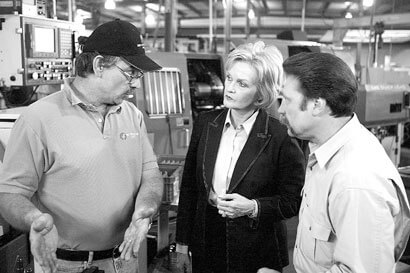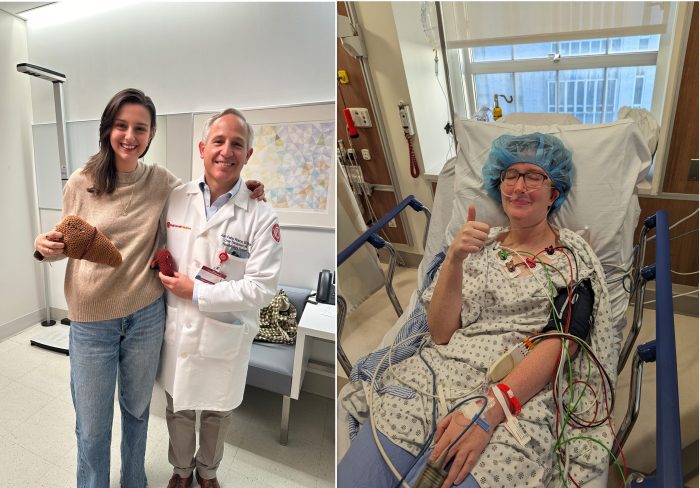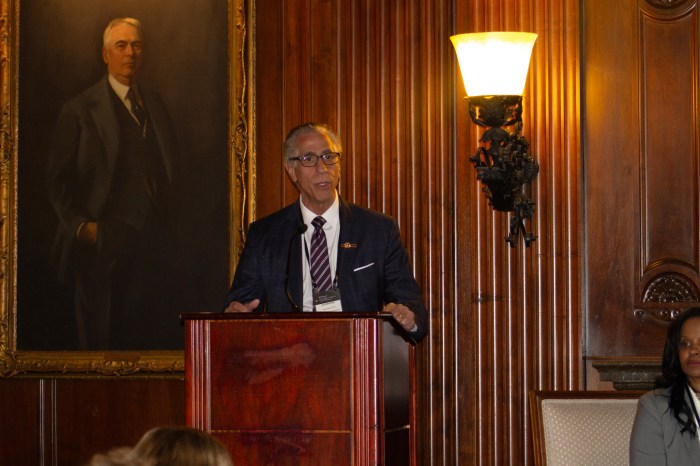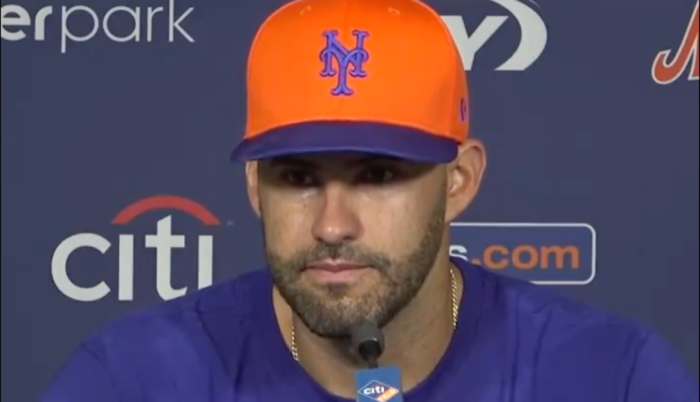Missouri political scientists caution finding bias in amendment landslide
Some conservatives were quick to claim credit for the victory last week in which Missouri voters overwhelming approved a state consitutional amendment banning gay marriage.
But some political observers in Missouri had a mixed reaction when asked if record numbers of voters went to the polls voters in order to vote against gay marriage.
Lana Stein, chairperson of the political science department at the University of Missouri at St. Louis, wrote in an e-mail message that, while voter turnout was “unusually high,” a number of factors contributed to 71 percent of Missouri voters approving the amendment.
One factor was the competitive Democratic gubernatorial primary contest. Claire McCaskill, the state auditor, unseated Gov. Bob Holden, the first time in Missouri’s history that voters have denied an incumbent governor his party’s nomination.
“The governor’s race was a factor,” Stein wrote. “Holden comes across poorly in the media and did not look good during the awful budget crisis. McCaskill is decisive, speaks better, plays better. Holden used some awful negative ads at the end.”
Fifty-eight percent of all voters in the August 3 primary were Democrats and 42 percent were Republicans. The turnout was the highest ever reported for a state primary election. Additionally, the Democratic gubernatorial candidates spent roughly $10 million on advertising.
A state constitutional amendment proposal on gambling also drew out large numbers of voters, who said no to gambling by a 56 to 44 percent margin. Opposing side spent roughly $4 million to help voters make up their minds. “Another factor was the ubiquitous gambling campaign,” Stein wrote. “I don’t know how many mailings I got plus there were a lot of TV spots.”
Stein said that Amendment 2, known as the marriage amendment, brought some voters to the polls. “Gay marriage captured social conservatives generally,” she wrote. “Conservative Christians have historically not been heavy voters, but Amendment 2 brought them out. There was certainly talk of the amendment in churches, etc.”
While spending on the Amendment 2 campaign was relatively small, roughly $500,000 total, voters might have also been motivated by this year’s same-sex marriages in Massachusetts and San Francisco, according to Stein.
John R. Petrocik, the political science chairperson at the University of Missouri at Columbia, thought the marriage amendment was a significant influence though he acknowledged that had not followed the primary closely. “I suspect that the gay marriage item was a major draw for many voters,” he wrote in e-mail. “It probably brought voters to the polls who otherwise might have abstained. Many Missourians probably felt more strongly on this matter, or at least as strongly, as they did about any of the candidate contests.”
Ken Warren, a pollster and political science professor at St. Louis University, said the marriage amendment had little or no influence in getting voters to the polls. “I don’t interpret this as some do that the constitutional amendment to ban gay marriage was responsible for the record turnout last Tuesday,” Warren said.
Warren said that national opinion polls have consistently shown that Americans do not see gay marriage as a pressing issue. They are most concerned with terrorism, the economy, jobs, Iraq, healthcare and education, according to Warren. Gay marriage is near the bottom of the list. “Public opinion polls show that the whole gay marriage issue is not perceived as that important an issue to most Americans,” he said. “By the time you get to the gay marriage issue it’s listed under ‘other.’ That’s down in the one to two percent category.”
Before this July’s unsuccessful U.S. Senate vote on the Federal Marriage Amendment, an amendment to the federal Constitution that sought to ban same-sex marriage, even right-wing observers in published reports complained of Americans’ lack of interest.
According to Warren, the Democratic gubernatorial contest brought a large number of voters to the polls. Ads in that race, Warren said, were running “like crazy, morning noon and night” then the candidates worked to get their supporters out. “You can see that the record-breaking turnout is among Democrats,” Warren said. “That’s practically where all the votes are.”
Once at the polls Missouri voters gave the gay marriage ban broad, bipartisan support, but they did not come to the polls specifically to register that support nor do they feel strongly about it, according to Warren. “I think it would be wrong for the gay community to interpret much intensity behind this vote,” he said. “They might favor traditional marriages, they voted overwhelmingly for the ban, but I think it would be wrong to interpret that as people sending a statement.”
Evidence of a substantial social conservative voting bloc might be found among those voters who approved the marriage ban and voted gambling out of Missouri. “You could see sort of a religious vote in the sense that they voted against gay marriage and they voted against gambling,” Warren said.
Stein, however, wrote that outlawing gambling might be connected to the failure of that industry to produce tax revenues for the state. “The two amendments weren’t identical,” she wrote. “Gay marriage captured social conservatives generally. Gambling got some of that, but also those disheartened by the failure of gambling to truly enrich revenues.”
The electoral strategy behind such state ballot initiatives—11 states may vote on these in the November elections—is to give social conservatives a reason to get out and reelect Pres. George W. Bush. The August lesson in Missouri might be that voters who ban gay marriage do not necessarily support conservative Republicans.
“My whole point is if you are not motivated to turn out in the biggest election, a presidential election, you are not going to turn out to ban gay marriages,” Warren said. “As far as a determinant of voter choice, this is not an issue that many Americans feel the election should be about. Americas are thinking about terrorism, they are thinking about Iraq, the economy, healthcare and education.”


































